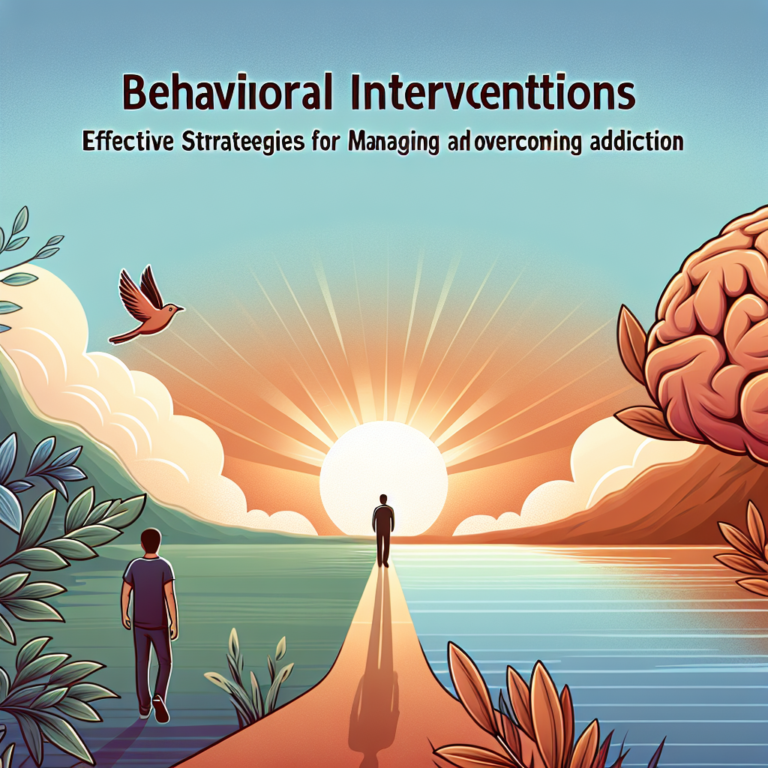
Navigating Life’s Pressures: Essential Behavioral Psychology Strategies for Lasting Stress Relief
Introduction
In the fast-paced world we live in, everyone seems to experience the relentless tide of stress. From juggling work deadlines to managing family commitments, the pressures of daily life can sometimes feel overwhelming. Stress, if left unaddressed, can lead to a myriad of health issues—both mental and physical. Therefore, navigating life’s pressures with effective tools is essential for maintaining well-being and achieving personal fulfillment.
Behavioral psychology offers a rich tapestry of strategies designed to help individuals manage stress in healthy, constructive ways. In this article, we will explore these strategies, illustrate their application through case studies, and provide actionable insights for you to integrate into your life. By the end, you will have a toolkit of proven methods to help you navigate life’s pressures more effectively.
Understanding Stress
Before diving into specific strategies, it’s crucial to understand the nature of stress itself. Stress is a physiological and psychological response to demand or threat, often referred to as a "stressor." According to the American Psychological Association, stress can be categorized into two types: acute stress, which is temporary, and chronic stress, which persists over long periods.
The Impact of Chronic Stress
Chronic stress affects not only mental health but physical health as well. It can lead to conditions such as anxiety disorders, cardiovascular diseases, and weakened immune response. With an understanding of stress established, let’s explore behavioral psychology strategies that can help alleviate these pressures.
Behavioral Strategies for Managing Stress
1. Cognitive Restructuring
Cognitive restructuring is a technique derived from cognitive-behavioral therapy (CBT). It involves identifying negative thought patterns and replacing them with more constructive ones.
Case Study: Lisa’s Work-Life Balance
Lisa, a 35-year-old marketing executive, often felt overwhelmed by her workload, leading to feelings of anxiety. Through cognitive restructuring, she learned to identify her belief that "I can’t handle any more responsibilities." By reframing this thought to "I can manage my tasks with proper prioritization," she found relief and a renewed sense of control.
Relevance Analysis: Lisa’s case illustrates how changing thought patterns directly influences emotional responses, highlighting the benefits of cognitive restructuring in managing stress.
2. Mindfulness Meditation
Research shows that mindfulness meditation can significantly reduce stress. This practice encourages individuals to focus on the present moment, fostering awareness and acceptance of their feelings without judgment.
Case Study: James’s Evening Routine
James, a busy software developer, incorporated mindfulness meditation into his evening routine. After just a few weeks, he reported feeling less anxious and more focused. His newfound ability to approach daily challenges with calmness empowered him to tackle stressors more effectively.
Relevance Analysis: James’s experience emphasizes the efficacy of mindfulness in promoting mental clarity and emotional regulation, showcasing its potential as a powerful strategy for navigating life’s pressures.
3. Behavior Activation
Behavior activation focuses on engaging in activities that align with your values and bring joy. This approach helps counter feelings of depression and anxiety through positive experiences.
Case Study: Maria’s Hobbies
Maria, who found herself consumed by work stress, began incorporating hiking into her weekly routine. This simple change improved her mood and provided an outlet for stress relief. The physical activity combined with time in nature rejuvenated her spirit.
Relevance Analysis: Maria’s shift illustrates how behavior activation can enhance emotional health, serving as a reminder to prioritize enjoyable activities amidst life’s demands.
4. Time Management Techniques
Effective time management can alleviate the pressure of multiple obligations. Strategies like prioritizing tasks, setting realistic deadlines, and using tools like planners can be beneficial.
Case Study: Aaron’s Prioritization Plan
Aaron, a project manager, often felt overwhelmed by conflicting deadlines. He began using the Eisenhower Box, a tool that categorizes tasks based on urgency and importance. By implementing this method, Aaron was able to focus on what truly mattered, reducing his stress levels substantially.
Relevance Analysis: Aaron’s proactive approach to time management illustrates how adopting structured frameworks can significantly diminish stress, allowing for a more balanced life.
5. Social Support Networks
Building and maintaining strong social connections can provide emotional support, practical help, and a sense of belonging—all crucial for managing stress.
Case Study: Emma’s Support Group
Emma, who cultivated a supportive friendship group, experienced less debilitating stress during challenging times. Knowing she could count on her friends for support made a significant difference in her coping capabilities.
Relevance Analysis: Emma’s situation highlights the importance of social connections in navigating life’s pressures, reinforcing that loneliness can exacerbate stress.
Table: Effective Behavioral Psychology Strategies for Stress Relief
| Strategy | Description | Benefits |
|---|---|---|
| Cognitive Restructuring | Replacing negative thoughts with positive ones | Improved emotional regulation |
| Mindfulness Meditation | Focusing on the present moment | Enhanced awareness and acceptance |
| Behavior Activation | Engaging in enjoyable activities | Increased happiness and fulfillment |
| Time Management Techniques | Prioritizing tasks and managing time efficiently | Reduced overwhelm and increased productivity |
| Social Support Networks | Building strong connections for emotional support | Enhanced resilience and coping skills |
Conclusion
In conclusion, navigating life’s pressures does not have to be an insurmountable challenge. By employing behavioral psychology strategies such as cognitive restructuring, mindfulness meditation, behavior activation, effective time management, and reinforcing social support, individuals can experience lasting stress relief.
The journey toward managing stress is personal and unique; what works for one person may not work for another. Therefore, it’s crucial to experiment with these strategies to discover what best fits your lifestyle. Remember, the key is not to eliminate stress entirely but to learn how to cope with it effectively.
Empower yourself with these tools and techniques, and let them guide you towards a balanced, fulfilling life.
FAQs
1. What is the most effective strategy for stress relief?
There is no one-size-fits-all answer. Strategies like cognitive restructuring and mindfulness meditation have proven effective for many. Experimenting to see which combination works best for you is vital.
2. How can I incorporate mindfulness into my daily routine?
Start with just five minutes of meditation each day, focusing on your breath or a simple mantra. Gradually increase the time as you become more comfortable with the practice.
3. How can social support reduce stress levels?
Social support provides a buffer against stress by offering emotional validation, practical assistance, and a sense of belonging. Connecting with friends or support groups can enhance resilience.
4. Is there a way to measure my stress levels?
Self-assessment tools, such as the Perceived Stress Scale (PSS), can help gauge stress levels. Additionally, tracking physical symptoms and emotional responses in a journal can provide insights.
5. What should I do if stress becomes overwhelming?
If stress feels unmanageable, consider reaching out to a mental health professional. They can provide tailored strategies and support to help you cope more effectively.
By integrating these insights and behavioral psychology strategies into your life, you can confidently navigate the pressures that come your way, paving the path for a more serene and fulfilling existence.















